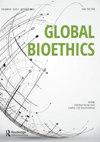Untangling the religious features of the Johnson Cult of New Hanover Island in the New Ireland province: anthropology and indigenous societies since Charles Darwin and others
Q1 Arts and Humanities
引用次数: 0
Abstract
The aim of this paper is to trace the religious aspects of the Johnson Cult as they were conceived and have undergone change and diffusion since 1963. In highlighting the religious aspects of the Johnson Cult, it is intended to make reference to several issues. First, this paper compliments the political, economic, and social aspects of the movement which were covered by Billings (Cargo Cult as Theater: Political Performance in the Pacific. Lanham, MD: Lexington Books, 2002) and others. The religious aspects of the Johnson Cult, some of which the adherents held back from disclosing to Billings for a number of reasons, were not captured in the study. This study highlights how in the religious aspects of the Johnson Cult are contained a continued search for sustainable and modern technological development for an indigenous Lavongai society, a Lavongai dream of a transformation of New Hanover into a Garden of Eden paradise as portrayed by Christianity. Second, as can be seen from the study by Billings, it is shown that anthropology can benefit from taking on a new approach in the study of indigenous societies, with more collaboration between outsider scientists and indigenous society insider scientists.解开新爱尔兰省新汉诺威岛约翰逊邪教的宗教特征:查尔斯·达尔文等人以来的人类学和土著社会
本文的目的是追溯约翰逊邪教的宗教方面,因为他们被构思和经历了变化和传播自1963年以来。在强调约翰逊教派的宗教方面时,它的目的是提及几个问题。首先,本文对比林斯所著的《作为剧场的货物崇拜:太平洋地区的政治表演》一书所涵盖的这场运动的政治、经济和社会方面进行了赞扬。兰哈姆博士:列克星敦图书,2002)等。约翰逊教派的一些宗教方面,由于种种原因,信徒们不愿向比林斯透露,但这项研究没有捕捉到这些方面。这项研究强调了约翰逊邪教的宗教方面如何包含了对土著拉旺盖社会可持续和现代技术发展的持续探索,拉旺盖梦想将新汉诺威转变为基督教所描绘的伊甸园天堂。其次,从比林斯的研究中可以看出,人类学可以受益于在土著社会研究中采取一种新的方法,使外部科学家与土著社会内部科学家之间有更多的合作。
本文章由计算机程序翻译,如有差异,请以英文原文为准。
求助全文
约1分钟内获得全文
求助全文

 求助内容:
求助内容: 应助结果提醒方式:
应助结果提醒方式:


